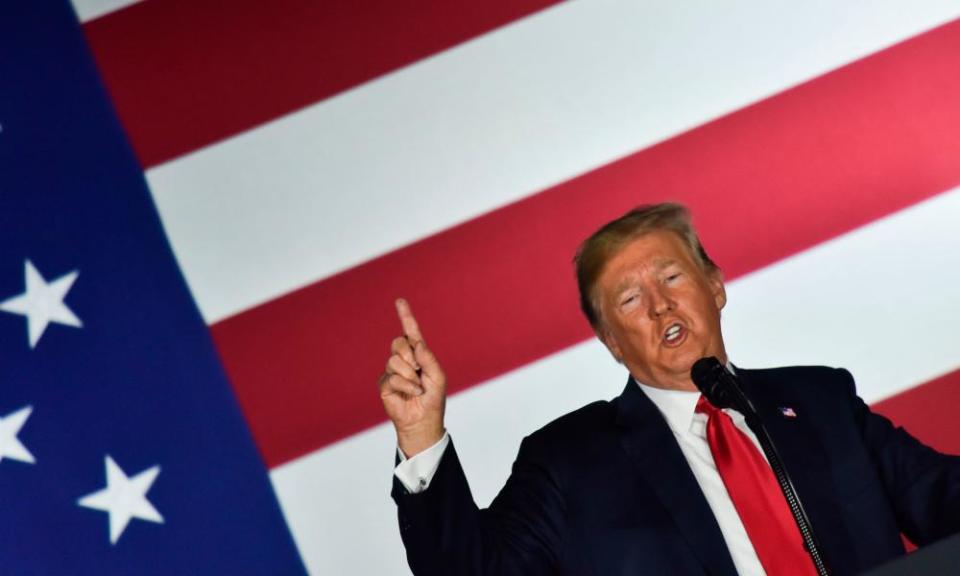US stock markets slide after Trump warns China: 'I am a Tariff Man'
Dow Jones, S&P 500 and Nasdaq all suffer sharp drops
Investors lose faith in trade truce between US and China

US stock markets fell sharply on Tuesday as investors lost faith in a trade truce between the US and China that had been negotiated by Donald Trump at last week’s G20 summit.
The Dow Jones industrial average lost close to 800 points – just over 3%. Other market indexes also fell sharply: the S&P 500 lost 3.2% and the Nasdaq dropped 3.7%.
Markets in Asia Pacific followed suit on Wednesday with Tokyo and Seoul both down 0.8%, and Australia’s benchmark ASX200 index falling 1.35%.
Stock markets had rallied on Monday after Trump tweeted: “Relations with China have taken a BIG leap forward!” But as the agreement was questioned on Tuesday, Trump called himself “a Tariff Man” and warned more levies could be imposed on China.
Trump and China’s president, Xi Jinping, reached a 90-day trade truce after a dinner at the G20 summit in Buenos Aires on Saturday. But differing reports on the terms of the truce from Chinese and US officials rattled investors fearful of a full-on trade war between the two economic superpowers.
After the meeting Trump told reporters: “It’s an incredible deal. If it goes down, certainly, if it happens, it goes down as one of the largest deals ever made.”
But details of the deal have since unravelled. White House officials have struggled to explain, for example, whether China has actually agreed to drop its 40% tariffs on US autos.
On Tuesday Trump, who has taken a combative stance on China, was once again threatening sanctions. “President Xi and I want this deal to happen, and it probably will,” Trump wrote on Twitter. “But if not remember, I am a Tariff Man. When people or countries come in to raid the great wealth of our Nation, I want them to pay for the privilege of doing so. It will always be the best way to max out our economic power.”
“The sense is that there’s less and less agreement between the two sides about what actually took place,” said Willie Delwiche, investment strategist at Baird. “There was a rally in the expectation that something had happened, the problem is that something turned out to be nothing.”
Senior White House officials tried to smooth over the cracks. The top White House economic adviser Larry Kudlow said negotiations with China were “pretty far advanced”.
“We’ve come further and the table of contents is larger than anything we’ve seen before,” he told attendees at a conference hosted by the Wall Street Journal.
But Kudlow also warned that a deal “may not get done” and serious differences remain over issues including China’s alleged theft of intellectual property. “I have no assurances,” he said.
Broader concerns about the US economy have also rattled investors. The yield on the five-year treasury note has fallen below the yield on the two-year note, a move that suggests investors are fearful about the economy’s longer-term health. In the past, when longer-term yields have fallen below shorter ones, that has signaled a potential recession could follow within a year or so.
